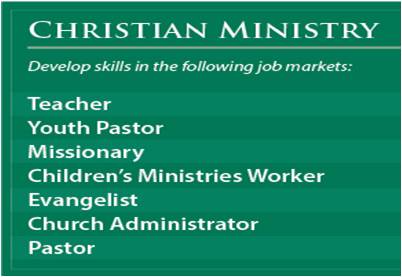A ministry leader is a servant (Matthew 20:25, 26) who sets an example in lovingly serving others (John 13:12-17). By being Christians and living a Christian life, we all inadvertently are ministry leaders. Not so much from the point of view of putting ourselves in a position of responsibility over others, but setting an example others might want to emulate.
However, there are ministry leaders who have a higher profile position and sometimes have responsibility over others. These people would not only exhibit qualities appreciated by the secular community but by Christians as well. They would have good character, biblical knowledge and emotional stability, plus be able to work well with others.
In New Testament times these ministry leaders fell into many different categories such as apostles (Mark 3:14, 1 Corinthians 9:1), preachers (Romans 10:14), deacons (1 Timothy 3:8-13), deaconesses (Romans 16:1 NLT), elders (Acts 20:17, 1 Peter 5:1-2), teachers (2 Timothy 2:2, James 3:1-2), and so on.
Ephesians 4:11 tells us God gave “some to be apostles, some to be prophets, some to be evangelists, and some to be pastors and teachers.” Why was there a need for this? The answer is found in verses 12-13: “to prepare God’s people for works of service, so that the body of Christ may be built up until we all reach unity in the faith and in the knowledge of the Son of God and become mature, attaining to the whole measure of the fullness of Christ.”
From time to time we may have need of various ministries in addition to preaching and teaching. Today’s social, cultural, and Christian climate seem to favor categories such as Children’s Ministry, Teen Ministry, Women’s Ministry, Worship Ministry, Men’s Ministry, Small Group Ministries, etc. Each of these ministries usually requires a ministry leader. The Bible term might be an “overseer” which is another way of saying “ministry leader.” In other words a ministry leader oversees various ministries and the people who help with those ministries.
The Bible lists qualities of overseers (1 Timothy 3:1-7; Titus 1:6-9).
- Reputable
- Monogamous
- Temperate
- Balanced
- Self controlled
- Wise
- Financially solvent
- Hospitable
- Spiritually mature
- Able to teach
- Gentle
- Kind
- Not argumentative

- Patient
- Not materialistic
- Honest
- Approachable
- Prayerful
- Biblically knowledgeable
- Disciplined
- Worshipful
- Willing to serve
- And so on…
Of course we would be hard pressed to find someone who flawlessly exemplifies all of the above qualities. Nobody is perfect, but you get the gist.
Some feel called to start a ministry. Others may be approached to serve the church in a leadership capacity. Either way, before leaping into this responsibility one might ask the following questions.
- Have I prayed about it?
- What is the specific purpose of this ministry?
- Who benefits from this ministry?
- Is this a ministry I feel called to lead?
- Am I a good fit for this ministry? Will it use my particular gifts?
- Will I have any support or help?
- What is involved in leading this ministry? What would be expected of me?
- Have I sought wise counsel from spiritual leaders, my spouse, with the one previously in charge of this ministry, and with someone who is in charge of a similar ministry?
- What impact will this have on my family?
- Is fear holding me back?
- What is my motive in leading this ministry? Is it to serve or be served?
If a ministry is under the umbrella of a specific church congregation one might want to ask the following questions as well.
- Does the purpose of this ministry fit within the mission statement of my church?
- Will those above me take my feelings into consideration if there are some things I don’t feel comfortable doing in regards to this ministry?
- Am I doing this because I’m afraid if I say “No, thank you” people won’t like me?
- Have I been put on a “guilt trip” to lead this ministry? Examples of this might be statements like “If you don’t do this then we won’t have anyone to do it” or “God will not be pleased with you if you turn this down.”
The Christian community needs more ministry leaders. If we’ve prayed about it there is no reason to shy away from or fear such responsibilities. Where God guides, God provides. However, there is nothing wrong with prayerfully taking a little time, seeking counsel, and evaluating the impact of our decision. This is called wisdom. If one is to be a ministry leader a little wisdom could be helpful.




